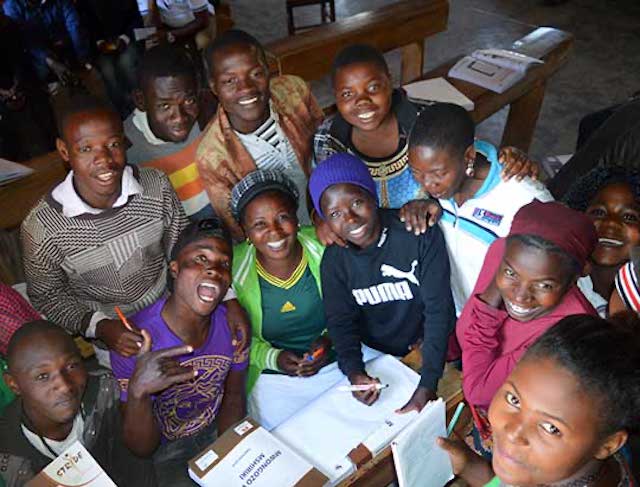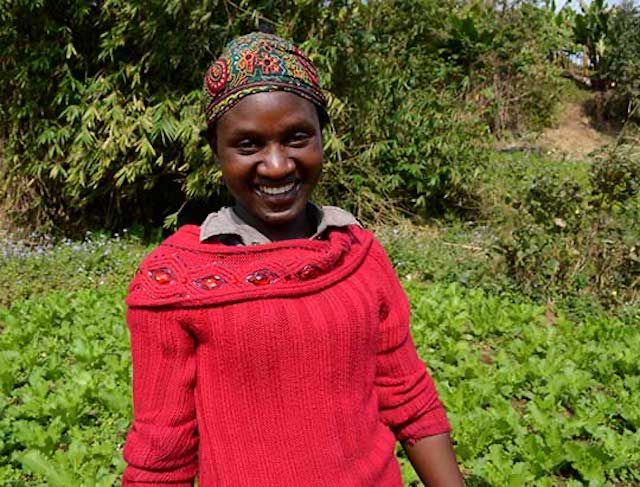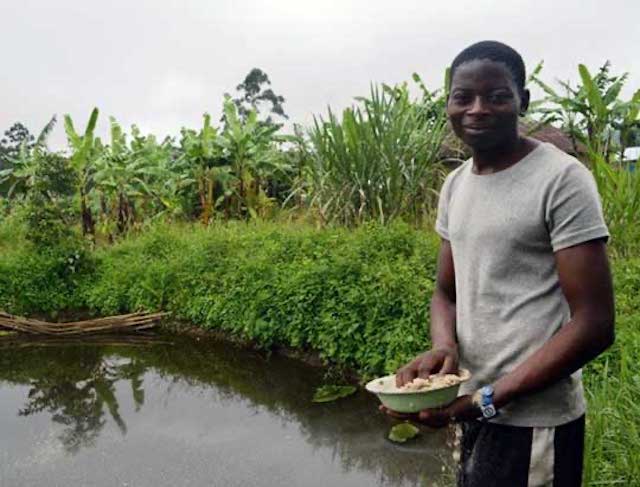Agriculture as Business for Rural Youth
Armed with the right skill set, young people in Tanzania are discovering the potential within agribusiness for profitable livelihoods.
In celebration of International Youth Day on August 12 we are sharing inspiring stories of young men and women who have worked with TechnoServe to gain economic independence.

When one brings up agriculture in Africa, the picture that inevitably comes to mind is of an old farmer bent over a hoe, scratching a dusty patch of soil in the blistering sun. This widely held perception creates a major hurdle when trying to sell the idea of farming to youth in Africa.
Africa is a youthful continent with 200 million people between the ages of 15 and 24, 75 million of whom are looking for jobs. Meanwhile, experts estimate that we need to increase global food production by 60 percent in the next three decades to feed a growing population. Engaging rural youth in agriculture is critical to enhancing global food security and ending hunger.
On a recent visit to Mbeya District in southwest of Tanzania, I observed an aging population of farmers toiling in sprawling fields – highlighting the need for agriculture to attract more young people. This is a global challenge not only in Tanzania but across sub-Saharan Africa where the average age of farmers is around 65.
Many young people turn their back on agriculture. And who can blame them? Inadequate access to markets, assets, finance and infrastructure in rural areas, combined with rapid growth and opportunities in urban areas increasingly make cities and towns the obvious choice in search for a “better life.”
So how can small-scale farming be made appealing for youth? And how can we ensure that agriculture helps meet their needs?
For more than five years, STRYDE – a partnership between TechnoServe and MasterCard Foundation – has been helping young men and women in rural East Africa transition to economic independence. Recognizing that youth entrepreneurship is critical to economic growth, violence prevention and political stability, STRYDE identifies avenues to integrate youth into agricultural value chains and entrepreneurship opportunities.
STRYDE’s training modules on personal finance, youth savings and business plan development have helped participants increase their incomes by 133 percent since the program’s inception. During three months of intensive training, youth acquire knowledge on how to identify and develop a viable agribusiness idea, how to market their products and how to maintain accurate records. Training is followed by six months of aftercare, or follow-ups from STRYDE staff to keep track of the participants’ progress and offer customized business support.
“Young people are usually not interested in agriculture in large part due to their misconstrued perception that farming is old-school, obsolete and unprofitable. The image of agriculture traditionally has been more about subsistence: you produce enough for you to eat. It is not seen as a business,” says Jahazi David, STRYDE’s Assistant Regional Training and Capacity Building Advisor. “But through the STRYDE curriculum we are dispelling these myths one by one and our beneficiaries are slowly beginning to embrace agriculture as a sustainable source of income.”
Their Own Bosses

STRYDE beneficiaries in rural Tanzania like Clementia Jairo are putting their new skills and knowledge into practice.
“I had never envisioned myself working on the farm to earn a living after completing high school. I saw myself working in [urban] Dar-es-Salaam but STRYDE changed that,” said Clementia.
Now the 22-year-old grows Chinese cabbage and beans on her grandmother’s farm, which used to lie fallow year-round. “I sell the vegetables in the local market and also save some money in my bank account. I am now self-employed and will soon start contracting more labor on the farm.”

A year ago, softly-spoken 24-year-old Abdallah Ringo could not wait to complete school and leave for the city, never to return. Born out-of-wedlock and growing up with his maternal grandparents, Abdallah faced an overwhelming stigma. “All I dreamt of was the day I would leave this village for the lights in the horizon, but STRYDE came along and turned my life around.”
Today he is a content fish farmer in Tukuyu Division, Mbeya. In addition to cultivating maize, Abdallah turned an idle patch of land behind his grandparents’ house into a fish pond using skills he learned during STRYDE field trips to a prominent fish farm in the area. Every month he sells his catch at a nearby market.
“I am now the bread winner, people respect me and I am no longer an outcast,” he said. Abdallah has also become a youth representative in a local youth council headed by the village chief. The STRYDE program has not only changed Abdallah’s financial situation, but also helped him beat stigma and discrimination.
It is really inspiring to see how an attitude shift towards agriculture makes such a difference. STRYDE aims to reach over 63,000 rural youth like Clementia and Abdallah in East Africa by 2019. It is a small but significant step towards achieving meaningful engagement for 75 million unemployed youth.



